Filter by

Introduction to the Representation Theory of Algebras
This book gives a general introduction to the theory of representations of algebras. It starts with examples of classification problems of matrices under linear transformations, explaining the three common setups: representation of quivers, modules over algebras and additive functors over certain categories. The main part is devoted to (i) module categories, presenting the unicity of the decomp…
- Edition
- -
- ISBN/ISSN
- 978-3-319-11475-0
- Collation
- -
- Series Title
- -
- Call Number
- -
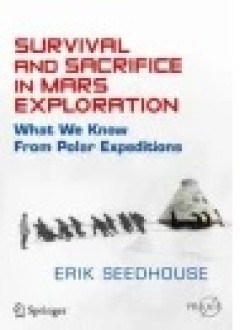
Survival and Sacrifice in Mars Exploration
With current technology, a voyage to Mars and back will take three years. That’s a lot of time for things to go wrong. But sooner or later a commercial enterprise will commit itself to sending humans to Mars. How will the astronauts survive? Some things to consider are: ith current technology, a voyage to Mars and back will take three years. That’s a lot of time for things to g…
- Edition
- -
- ISBN/ISSN
- 978-3-319-12448-3
- Collation
- XXV, 163
- Series Title
- Springer Praxis Books
- Call Number
- -
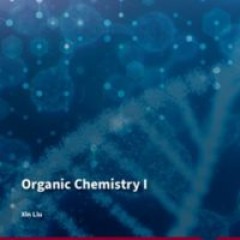
Organic Chemistry I
An open textbook that is suitable for the first semester of Organic Chemistry. Basic concepts of the structures and reactivities of organic molecules are covered in this open textbook. Besides the fundamental discussions of organic acids-bases, stereochemistry, IR and NMR, this book also includes the topics of substitution and elimination reactions, radical substitution of alkanes, preparation …
- Edition
- -
- ISBN/ISSN
- 9781989864524
- Collation
- -
- Series Title
- -
- Call Number
- 547 LIU c

Survivable Restructuring of Vegetable Distribution and Wholesale Markets in W…
The subject of this book is to reveal the formation process of circulation structure centering on vegetable wholesale market in western cities of China. The data are mainly from the interview and survey on farmers, vegetable wholesalers and retailers and operators of vegetable wholesale markets. The findings of the research show that the large vegetable production bases in eastern economically …
- Edition
- -
- ISBN/ISSN
- 978-3-662-47253-8
- Collation
- X, 71
- Series Title
- SpringerBriefs in Economics
- Call Number
- -
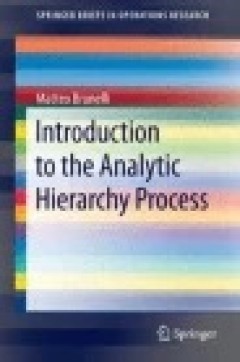
Introduction to the Analytic Hierarchy Process
The Analytic Hierarchy Process (AHP) has been one of the foremost mathematical methods for decision making with multiple criteria and has been widely studied in the operations research literature as well as applied to solve countless real-world problems. This book is meant to introduce and strengthen the readers’ knowledge of the AHP, no matter how familiar they may be with the topic. This…
- Edition
- -
- ISBN/ISSN
- 978-3-319-12502-2
- Collation
- -
- Series Title
- -
- Call Number
- -
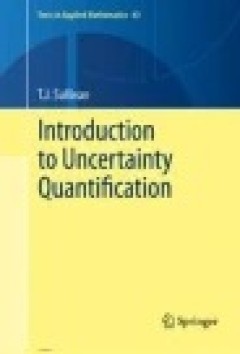
Introduction to Uncertainty Quantification
This text provides a framework in which the main objectives of the field of uncertainty quantification (UQ) are defined and an overview of the range of mathematical methods by which they can be achieved. Complete with exercises throughout, the book will equip readers with both theoretical understanding and practical experience of the key mathematical and algorithmic tools underlying the treatme…
- Edition
- -
- ISBN/ISSN
- 978-3-319-23395-6
- Collation
- -
- Series Title
- -
- Call Number
- -
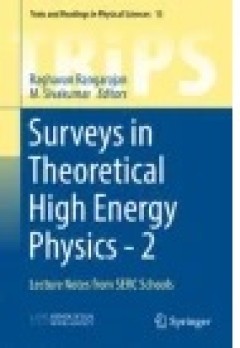
Surveys in Theoretical High Energy Physics - 2
The book presents pedagogical reviews of important topics on high energy physics to the students and researchers in particle physics. The book also discusses topics on the Quark–Gluon plasma, thermal field theory, perturbative quantum chromodynamics, anomalies and cosmology. Students of particle physics need to be well-equipped with basic understanding of many concepts underlying the standard…
- Edition
- -
- ISBN/ISSN
- 978-981-10-2591-4
- Collation
- XV, 295
- Series Title
- Texts and Readings in Physical Sciences
- Call Number
- -

Surveys in Differential-Algebraic Equations III
The present volume comprises survey articles on various fields of Differential-Algebraic Equations (DAEs), which have widespread applications in controlled dynamical systems, especially in mechanical and electrical engineering and a strong relation to (ordinary) differential equations. The individual chapters provide reviews, presentations of the current state of research and new concepts in - …
- Edition
- -
- ISBN/ISSN
- 978-3-319-22428-2
- Collation
- IX, 313
- Series Title
- Differential-Algebraic Equations Forum
- Call Number
- -

Surveys in Differential-Algebraic Equations II
The present volume comprises survey articles on various fields of Differential-Algebraic Equations (DAEs), which have widespread applications in controlled dynamical systems, especially in mechanical and electrical engineering and a strong relation to (ordinary) differential equations. The individual chapters provide reviews, presentations of the current state of research and new concepts in -…
- Edition
- -
- ISBN/ISSN
- 978-3-319-11050-9
- Collation
- VII, 339
- Series Title
- Differential-Algebraic Equations Forum
- Call Number
- -
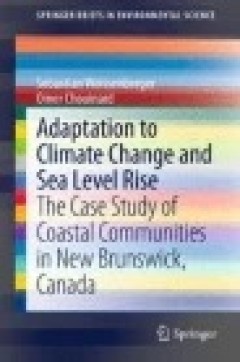
Adaptation to Climate Change and Sea Level Rise: The Case Study of Coastal Co…
The book provides a concise and interdisciplinary outlook on the impacts of climate change on coastal areas and how coastal communities adapt to them. The first chapter analyses how sea level rise, changing ocean conditions, or increased climate variability and the socio-environmental context of the coastal zone leads to vulnerable communities. The second chapter addresses adaptation strategies…
- Edition
- Ed. 1
- ISBN/ISSN
- 978-94-017-9888-4
- Collation
- VI, 100
- Series Title
- SpringerBriefs in Environmental Science
- Call Number
- 551.6 WEI a
 Computer Science, Information & General Works
Computer Science, Information & General Works  Philosophy & Psychology
Philosophy & Psychology  Religion
Religion  Social Sciences
Social Sciences  Language
Language  Pure Science
Pure Science  Applied Sciences
Applied Sciences  Art & Recreation
Art & Recreation  Literature
Literature  History & Geography
History & Geography